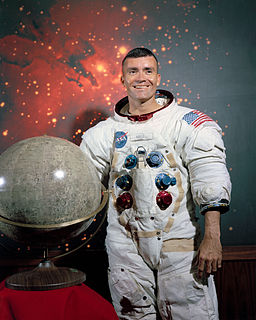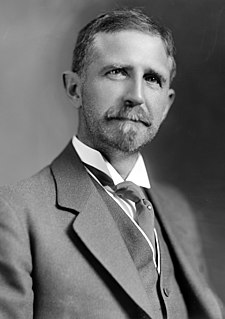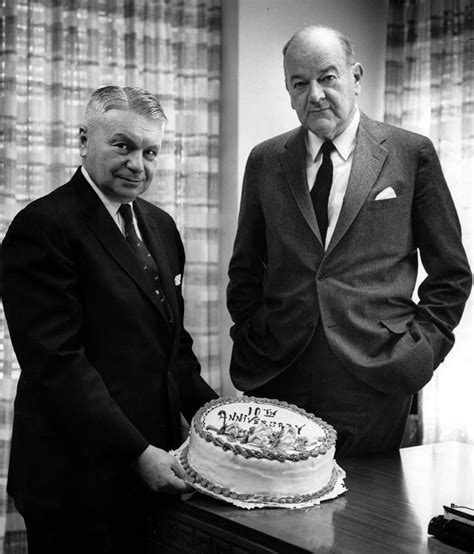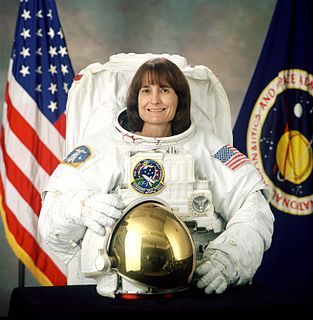A Quote by Karl Schroeder
I remember the moon landings, and Apollo was the paradigm by which all progress was measured at that time. And I knew that creating a true space-faring civilization was both possible and practical. What I failed to realize was that the effort would fail due to bureaucratic inertia and political apathy.
Related Quotes
Does anyone believe for one moment that the progress we have made would have been possible under bureaucratic control of any government. This country was founded upon the principle of the regulation of private effort, of making rules for the game, and under that system alone can we look for the same success in the future which has been ours in the past. Our position today is the direct result of the free play among our people of private competitive effort.
I was an eight-year-old kid when I watched the first Apollo Moon Landing way back in 1969 and there was something about that moment that really stuck in my head. I'd always been interested in space and flying and I was building model rockets and model airplanes, but something about that moment, I can remember like it was yesterday watching the Apollo Lunar Lander approach the surface of the Moon and then later watching Neil Armstrong and Buzz Aldrin take the first steps on the Moon, and something that day started the dream for me that, hey, I want to be like those guys.
In less than 70 hours, three astronauts will be launched on the flight of Apollo 8 from the Cape Kennedy Space Center on a research journey to circle the moon. This will involve known risks of great magnitude and probable risks which have not been foreseen. Apollo 8 has 5,600,000 parts and 1.5 million systems, subsystems and assemblies. With 99.9 percent reliability, we could expect 5,600 defects. Hence the striving for perfection and the use of redundancy which characterize the Apollo program.
An unchangeable colour rules over the melancholic: his dwelling is a space the colour of mourning. Nothing happens in it. No one intrudes. It is a bare stage where the inert I is assisted by the I suffering from that inertia. The latter wishes to free the former, but all efforts fail, as Theseus would have failed had he been not only himself but also the Minotaur; to kill him then, he would have had to kill himself
Sustainability is especially ripe for political controversy and opposition because fundamentally it is a new paradigm that represents significant challenges to the status quo. The paradigm of sustainability, with its notions of limitations and carrying capacities confronts dominant paradigms of progress which do not recognize limits to unchecked growth
Scientists constantly get clobbered with the idea that we spent 27 billion dollars on the Apollo programs, and are asked "What more do you want?" We didn't spend it; it was done for political reasons. ... Apollo was a response to the Bay of Pigs fiasco and to the successful orbital flight of Yuri Gagarin. President Kennedy's objective was not to find out the origin of the moon by the end of the decade; rather it was to put a man on the moon and bring him back, and we did that.
There was only so much space between us, not even a real distance if measured in miles or feet or even inches, all the things that told you how far you'd come or had left to go. But it was a big space, if only for me. And as I moved forward to him covering it, he waited there on the other side. It was only the last little bit I has to go, but in the end, I knew it would be all I would truly remember. So as I kissed him, bringing this summer and everything else full circle, I let myself fall, and was not scared of the ground I knew would rise up to meet me.
I actually don't remember Apollo 11 exactly because, at the time, I was five years old. The landing happened at night, and the walk on the moon happened at night eastern time, and I asked my parents; my mom said I was probably asleep, and so I just don't have any recollection. I do have recollection of the later missions to the moon.



































